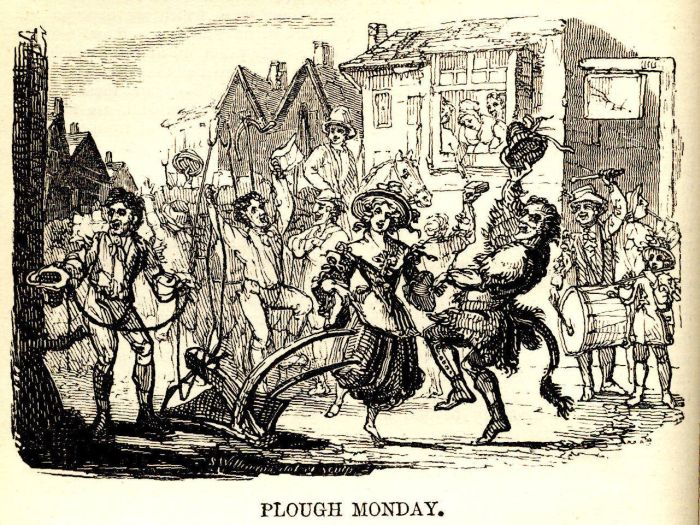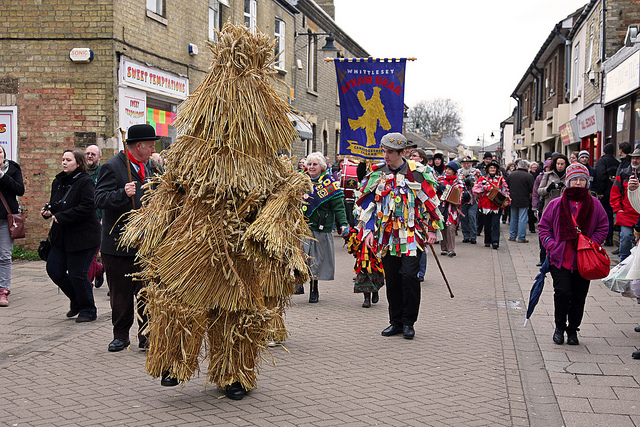Plough Monday falls on the first Monday after the twelfth night of Christmas, which is also the night of the Epiphany. It marks the beginning of the English agricultural year and when ploughmen traditionally returned to the fields to prepare the Spring crops.

Still celebrated in some parts of the the north and east of England, the tradition is to trail a plough around local houses to collect money to pay for a community feast. If the person or household is unwilling to contribute then the assembled ploughmen and ploughboys, usually in fancy dress and blackened or reddened faces, would turn their doorstep over with the plough or cut a deep furrow in front of their door.
The celebration of Plough Monday dates back to the fifteenth century, and it may have grown from an older, pagan tradition marking the beginning of Spring (though there is only slight evidence). While the specifics of each celebration may differ, it is the exchange of money which crops up again and again. It is thought that the money taken in by plough teams would help maintain a ‘plough light’ in the local church, but after the Reformation this tradition fell off and the money began to be used for festivities instead.
What is interesting about Plough Monday is how a fairly odd tradition was so prevalent across Yorkshire, Lincolnshire and East Anglia but is rare in the rest of the country. Peter Millington has an interesting discussion of various hypotheses on his website, including whether it was an imported Danish tradition, was established as part of Danish Law or was connected with the establishment of the Archbishophric of York in the eleventh century. Whatever its origin, it is a delightful slice of English rural life and you can find out if there is an event near you here.


